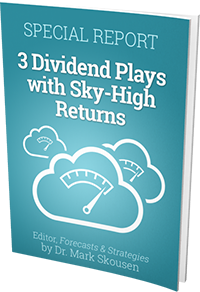A Guide to REIT Taxation offers a comprehensive explanation of what potential real estate investment trust (REIT) investors can expect to face with regard to tax obligations.
A Guide to REIT Taxation: Understanding REITs
What is a REIT?
A REIT owns, operates or finances income-producing real estate. There are a wide range of property types that REITs invest in, including apartment buildings, warehouses, offices, retail centers, medical facilities, data centers, hotels, cell towers, timber and farmland.
Generally, REITs follow a straightforward business model: the company buys or develops properties and then leases them out to collect rent as its primary source of income. However, some REITs do not own property, choosing the alternative route of financing real estate transactions. The REITs generate income from the interest on the financing.
Investors can buy shares in a REIT company, the same way they can be purchased in any other public company. Investors can buy publicly traded REIT shares on major stock exchanges such as the NYSE or NASDAQ.
There are more than 225 REITs in the United States that trade on major stock exchanges, as well as are registered with the Securities and Exchange Commission (SEC). These REITs, which are primarily traded on the NYSE, have a combined equity market capitalization of more than $1 trillion.
A Guide for REIT Taxation: Why are the Taxes Unique?
It is very important for potential investors to understand the way REITs are taxed before making investment decisions. REIT taxes are unique, and the concept can be difficult to understand.
Taxation at the Trust Level
A REIT is an entity that would be taxed as a corporation, if not for its special legal status. To meet the definition of a REIT, it is legally required to pay out at least 90% of taxable income as dividends to shareholders. Because of this, REITs usually have above-average dividend yields. Given that the dividends are the taxable portion of the REIT’s income, the REIT is able to pass its tax burden to the shareholders as opposed to paying the taxes itself. In other words, the REIT company itself pays no federal income taxes, and the tax obligation falls on the shareholders.
Taxation at the Shareholder Level
Each dividend payout from the REIT to its shareholders is composed of a mix of funds that are acquired by the REIT from an array of sources. Profits earned by the REIT from different sources have individual tax rules. Therefore, investors do not always pay the same tax rate on the distributions received from the REIT. Rather, the payout must be dissected and categorized to determine the tax treatment.
Non-U.S. residents should note that their REIT income could be subject to a 30% withholding tax. A reduced rate and exemption may apply if a tax treaty exists between the United States and the REIT holder’s country of residence.
Dividend distributions may be allocated to three categories; operating profit, capital gains and return of capital. Each of these three categories comes along with unique tax rules, which will be discussed below.
The allocation will be broken down on the 1099-DIV that REITs send to shareholders each year for tax season.
REIT dividends are also unique because they are considered ordinary, or nonqualified dividends. Nonqualified dividends are taxed at standard federal income tax rates, whereas qualified dividends are taxed at the capital gains rate. Whether or not a dividend is qualified depends on if it meets certain requirements from the IRS. Generally speaking, most dividends from U.S. corporations are qualified. REITs are one of few instances where dividends are considered ordinary.
A Guide to REIT Taxation: The Three Scenarios
Ordinary Income
Oftentimes, the dividend payouts are made up entirely of operating profit. When a company passes along operating profit to investors, it is received as ordinary income, and therefore the investor must pay his or her ordinary income tax rate on the dividend. This is the most common scenario. More often than not, shareholders must pay their income tax rate.
Capital Gains
While operating profit makes up the bulk of REIT dividends, it is not out of the ordinary to see some portion of REIT dividend labeled as long-term capital gain. This scenario occurs when a REIT sells a property that it has owned for over a year and the income from the sales of the property is distributed to shareholders.
Long-term capital gains are taxed at lower rates than ordinary income. The long-term capital gains rates in the United States are currently 0%,15% or 20%, depending on the taxpayer’s income, but the rate is always lower than the corresponding tax rate for ordinary income.
Return of Capital
Finally, a portion of a REIT’s distribution could be classified as a return of investor capital, or net distributions in excess of the REIT’s earnings and profits. This can happen when the company takes large depreciation expenses. Furthermore, return of capital is not taxable immediately, and it is not taxed as ordinary income. Instead, portions of dividends that are considered return of capital are applied to reduce the shareholders’ cost basis in the stock.
For example, if an investor paid $50 per share for a REIT, and the REIT distributed $1.00 as a non-taxable return of capital, the investor’s cost basis (the price he or she originally paid per share) would be reduced to $49. When the shares are eventually sold, the difference between the share price and reduced tax basis is taxed as a capital gain. Therefore, distributions that include return of capital do not have an immediate impact on tax liability. However, return of capital increases an investor’s capital gains tax bill when he or she ultimately sells the REIT shares.
A Guide to REIT Taxation: An Example
The following example illustrates a fairly common scenario regarding REIT taxation.
An investor buys a REIT that is currently trading at $10 per unit. The REIT generates $1 per unit from operations and distributes 90% (or $0.90) to shareholders. At the end of the year, management declared that 20% of the payout, or $0.18, came from depreciation and other expenses and is considered a nontaxable return of capital. This means that only $0.72 of the dividend was net profit.
In this case, only $0.72 of the $1 per share dividend is considered ordinary income. Meanwhile, the investor’s cost basis has decreased by $0.18 to $9.82 per share.
When the investor later sells the shares, this reduction in cost basis will be taxed as either a long- or short-term gain or loss when the units are sold.
A Guide to REIT Taxation: The Bottom Line
The rules of REIT taxation are unique, given that REIT dividends are non qualified and that REIT dividend payouts may consist of money that came from a variety of sources. Shareholders can face varying tax rates depending on the situation.
The unique tax advantages can translate into a steady stream of income for investors and higher yields than what they might earn in fixed-income markets.
The unfortunate reality for REIT shareholders is that the tax burden falls on them. Investors should know whether these payments are in the form of income, capital gains or a return of capital, as each is treated differently at tax time. However, this is no reason to look past REITs, as they can still be an attractive investment. It just means that it is important for potential investors to educate themselves about REIT taxes so they know what to expect.




